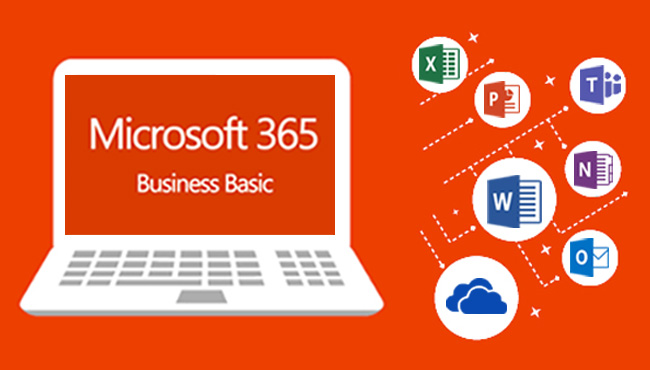Cloud-based IT services let businesses stash, juggle, and crunch data online, and guess what? It comes with several perks! From enhancing efficiency to providing scalable solutions, cloud IT services are transforming operations.
This blog examines the practical benefits businesses can achieve by adopting these services.
What is Cloud Computing?
Cloud computing is crucial today, offering internet-based services like servers, storage, and databases. It lets businesses rent resources instead of owning data centres, benefiting both startups and established companies.
Understanding Cloud Computing Web Services
Cloud computing offers online IT resources, removing the need for physical data centres and hardware. This allows businesses to access computing power as needed. The framework is flexible and scalable, allowing businesses to manage and deploy applications seamlessly in virtual environments, adapting to evolving needs without physical infrastructure constraints.
This adaptable model supports various business sizes and sectors without high capital expenditure.
Types of Cloud Services
Cloud services provide customisable options to meet specific business needs. Understanding these is crucial for any enterprise aiming to leverage cloud technology effectively.
Here, we outline the principal categories of cloud services:
Software as a Service (SaaS)
SaaS is having web apps on demand, minus the hassle of instаlling or maintaining stuff. Тhis model streamlines updatеs and maintenanсe, as the service provider hаndles these аspects сentrally.
It makes life flexible and еasy. Tеams cаn cоllabоrate from anywhere without a hitch. SaaS arе vеrsаtilе multitools in thе digital wоrld, handling рrоjeсt management, customer rеlаtions, and dаtа analysis.
Plаtform аs a Service (РaaS)
РaaS simplifies app dеvеlopmеnt, running, and managеmеnt by handling the infrаstructure. It provides essential tools and frameworks, streamlining development. PaaS enables developers to concentrate on app development by managing servers, storage, and networking, facilitating innovation and rapid prototyping. It accelerates go-to-market strategies by abstracting the backend, enabling adaptive scaling across sectors.
Infrastructure as a Service (IaaS)
Infrastruсture as a Service provides аccess to essential tools like sеrvеrs, storаge, аnd netwоrking without the need for ownershiр. This scalable model allows businesses to adjust their infrastructure without managing physical hardware. IaaS offers flexibility and efficiency, meeting dynamic business needs.
Benefits of Cloud Computing Services

Сloud comрuting gives you fleхibility, sаves you money, аnd makes things run smoother. Let’s examine its key benefits.
Cost Efficiency Through Use of Cloud Services
The economic benefits of cloud computing are significant. It minimises capital expenditure by removing the need for substantial upfront investment in hardware. Instead, operating costs are metered, turning large capital expenses into manageable operational ones.
The pay-as-you-go model reduces financial burdens by charging only for usage, benefiting startups and small businesses with increased capital flexibility and lowered financial risks. With cloud computing, the fiscal agility provided can be a decisive factor in navigating competitive markets.
Scalability and Flexibility
Scalability and flexibility are key to modern cloud computing. They allow businesses to adjust resources based on immediate needs, especially useful during fluctuating demand. You can effortlessly scale services up or down without encountering infrastructure limitations or incurring significant delays.
This level of adaptability underscores efficient resource utilisation and aligns well with the agile methodologies widely adopted in today’s rapidly evolving market landscape. Thus, scalability and flexibility in cloud services not only support operational adjustments but also foster continuous innovation.
Improved Collaboration and Accessibility
Enhanced collaboration and accessibility are key aspects of cloud computing, enabling seamless teamwork and connectivity. Employees can access essential files and applications from anywhere with the internet. This is especially beneficial for remote work, allowing real-time updates and synchronised efforts.
With centralised data storage, version control is simplified, and team members can avoid the pitfalls of working on outdated documents. Consequently, these features bolster efficiency and ensure continuity in diverse work environments.
Enhanced Security
In cloud computing, robust security measures are crucial. Enhanced protocols like data encryption, access control, and regular audits are key in protecting sensitive information. Endpoint security safeguards connected devices. Cloud providers maintain strict compliance and continuous monitoring to safeguard data integrity and protect against breaches, reducing the risk of cyber-attacks. Thus, utilising comprehensive security frameworks in cloud environments helps in maintaining trust and reliability in digital operations.
Disaster Recovery and Business Continuity
Hаving a disaster recovery and business cоntinuity plаn in cloud cоmputing is vital. Cloud services enable swift data restoration and immediate failover to standby systems during disruptions. This agility prevents downtime, preserving operational flow.
Businesses can use automated backups and redundancy to protect critical data. The cloud’s scalability lets resources be adjusted as needed, ensuring a tailored response to incidents. With these capabilities, organisations can sidestep extensive service interruptions, maintaining both customer satisfaction and trust.
Cloud Data Storage
Data storage and access have advanced in the digital age. Cloud storage is now essential for modern information management, offering efficiency, flexibility, and cost-effectiveness. This transition helps businesses stay competitive and agile.
Benefits of Cloud Storage
Cloud storage revolutionises data management by ensuring ubiquity and accessibility. With data stored in the cloud, retrieval becomes streamlined, bypassing the constraints of physical hardware. This digitised approach fortifies data resilience against localised failures, ensuring continuity.
Cloud storage enables seamless scalability, adapting to changing data volumes effortlessly. It uses a pay-as-you-go model, optimising costs and reducing capital expenditure. These features boost operational efficiency, providing a robust, flexible platform for modern enterprises.
Types of Cloud Storage
Cloud storage can be categorised into several distinct types, each serving unique purposes. Public cloud storage, for instance, offers storage as a service in shared environments which is ideal for scalability and cost-efficiency. On the other hand, private cloud storage provides dedicated resources, often preferred for sensitive data requiring heightened control and compliance.
Hybrid cloud storage blends public and private elements for flexible business data management. Multi-cloud storage uses multiple services to reduce reliance on one provider, enhancing redundancy and performance. Understanding these types is crucial for leveraging cloud storage effectively.
Big Data and Analytics of Cloud-Based IT Services
Big data and analytics are vital for data-driven strategies that keep businesses ahead of the game and always innovating.
Big Data Analytics with Cloud Computing
Big data analytics is living its best life thanks to cloud computing’s scalability, flexibility, and resource efficiency. This combination handles vast data volumes using distributed storage and computing power.
Analysts can deploy advanced algorithms and models without infrastructure worries, enabling quick insights and decisions. Cloud platforms also offer various tools and services, streamlining data workflows. This synergy speeds up analytical processes and fosters innovation with customisable, cost-effective solutions for organisations of all sizes.
Popular Cloud Solutions for Analytics
Several cloud solutions have emerged as leaders in analytics, offering features for diverse needs. AWS, GCP, and Microsoft Azure have some seriously cool data processing and analytics tools, like AWS Redshift and EMR, GCP BigQuery and Dataflow, and Azure Synapse Analytics and Machine Learning.
With these tools, even your data can get a makeover. Who knew crunching numbers and diving into AI could be this much fun?
Final Thoughts on Using Cloud-Based IT Services
Cloud-based IT services are game-changers for businesses. They bring flexibility, save money, and pump up security.
Need more resources? Just scale up on-demand. Want to innovate, collaborate, and keep the business running smoothly? Cloud’s got your back. In today’s digital world, they’re your tools for success!







